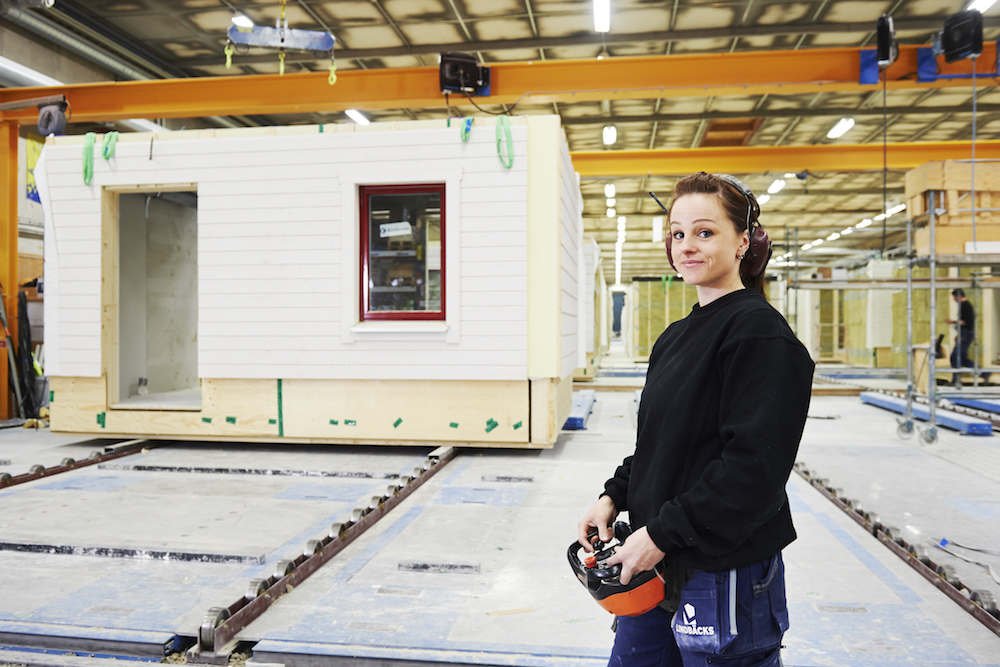As Baby Boomers retire from the workforce, construction companies are seeing a new wave of younger employees step into key management and sales roles. Millennials (born between 1981 and 1996) and Generation Z (born between 1997 and 2012) bring with them fresh perspectives and work habits that are redefining traditional career paths within the industry. A trend of frequent job movement, or “job-hopping,” among these younger generations has begun to reshape workforce dynamics, creating both challenges and opportunities for construction companies.

Historically, management and sales positions in construction have seen steady movement, with individuals often shifting between companies to advance their careers or gain different experiences. However, Millennials and Gen Z are taking job mobility to new levels, driven by different motivations and expectations from their predecessors. Understanding these motivations is essential for construction companies looking to build a stable, dedicated workforce amidst changing generational preferences.
The Rise of Job Mobility
Job-hopping has become more common among Millennials and Gen Z across various industries, and the construction sector is no exception. A recent study by the Royal Melbourne Institute of Technology revealed that nearly 30% of Australians under 30 were considering a career change within the next year. This trend indicates that younger workers are not only open to, but actively seeking, career transitions. According to data, they are more likely to prioritize career advancement, work-life balance, and personal fulfillment over traditional long-term job loyalty.
In the construction industry, job-hopping reflects a growing appetite among young professionals for new challenges, career development, and higher compensation. As Millennials and Gen Z professionals take over management and sales roles, they tend to explore various opportunities across companies to achieve their professional goals. This shift has led to increased turnover rates, a challenge that construction companies must address to maintain continuity and stability.

Key Factors Behind Increased Job Mobility
The factors driving job mobility among Millennials and Gen Z go beyond mere financial gain. Their work philosophies differ from those of Baby Boomers, who typically valued job security and company loyalty. Here are some of the primary motivators behind the trend:
Desire for Career Advancement
Younger employees prioritize career progression and professional growth. Many Millennials and Gen Z professionals seek to move up the career ladder quickly, and if they feel limited in their current roles, they are often willing to change employers to gain new skills, take on leadership positions, or secure higher salaries. For many young professionals in construction, this translates to shorter tenures and an eagerness to switch roles to advance their careers.

Focus on Work-Life Balance
Unlike previous generations, Millennials and Gen Z workers place high importance on work-life balance and mental well-being. For them, flexibility in work hours, remote work options, and a supportive workplace culture are crucial factors. Construction roles, which often involve long hours and on-site demands, may prompt younger employees to look for positions within companies that accommodate their work-life balance needs. Companies that don’t offer this flexibility often see younger employees leaving for better work environments.
Pursuit of Meaningful Work
Many younger workers want their jobs to align with their personal values and to feel that their work has a meaningful impact. In construction, this translates to a preference for projects that contribute to community development, sustainability, or innovation. Millennials and Gen Z are drawn to roles that offer a sense of purpose and the ability to make a tangible difference. Companies focusing on green building, community development, or cutting-edge construction technologies are more likely to retain young talent eager for meaningful contributions.

How Construction Companies Can Adapt
To retain Millennials and Gen Z employees, construction companies need to adjust their strategies and embrace new approaches to workforce management. Here are a few key strategies:
Clear Career Development Paths
Offering structured career advancement opportunities can help companies meet the growth aspirations of younger employees. Creating mentorship programs, providing professional development resources, and clearly outlining paths to promotion can help retain ambitious employees who might otherwise seek growth elsewhere.
Embrace Technological Advancements
Millennials and Gen Z have grown up in the digital age, and they expect their workplaces to reflect this reality. By adopting advanced technology, such as project management software, Building Information Modeling (BIM), and automation tools, construction companies can attract tech-savvy employees and create a more efficient and modern workplace. This shift not only meets younger employees’ expectations but also positions companies as forward-thinking and innovative.
Foster an Inclusive Workplace Culture
Younger generations value diversity, inclusivity, and a positive work environment. Companies that prioritize a culture of respect, collaboration, and inclusivity are more likely to attract and retain Millennials and Gen Z. Implementing initiatives focused on employee wellness, mental health support, and flexible work arrangements can improve workplace satisfaction and reduce turnover.
Offer Flexibility in Roles and Responsibilities
Adapting to the flexible work demands of Millennials and Gen Z can also involve offering more versatile roles and responsibilities. Many younger employees seek diverse experiences and prefer positions that allow them to engage in various aspects of a project. Rotational programs or job-sharing opportunities can give them the exposure they desire within a single company, reducing their need to move on for new experiences.
Highlight Company Impact and Purpose
Construction companies with a clear mission related to sustainability, innovation, or social responsibility often attract purpose-driven young professionals. Emphasizing the impact of projects on local communities or the environment can inspire young employees to stay with a company that aligns with their values.
Modcoach Note
The shift in generational preferences represents both a challenge and an opportunity for the construction industry. As Millennials and Gen Z continue to take on prominent roles, companies must adapt to their evolving expectations. Companies that can successfully integrate career development, technology, inclusivity, and flexibility into their operations are better positioned to attract and retain young talent.
By aligning workplace practices with the values and goals of younger employees, construction companies can build a more stable, engaged, and loyal workforce, ultimately contributing to long-term success in a highly competitive industry.
.
CLICK HERE to read the latest edition
Contact Gary Fleisher












